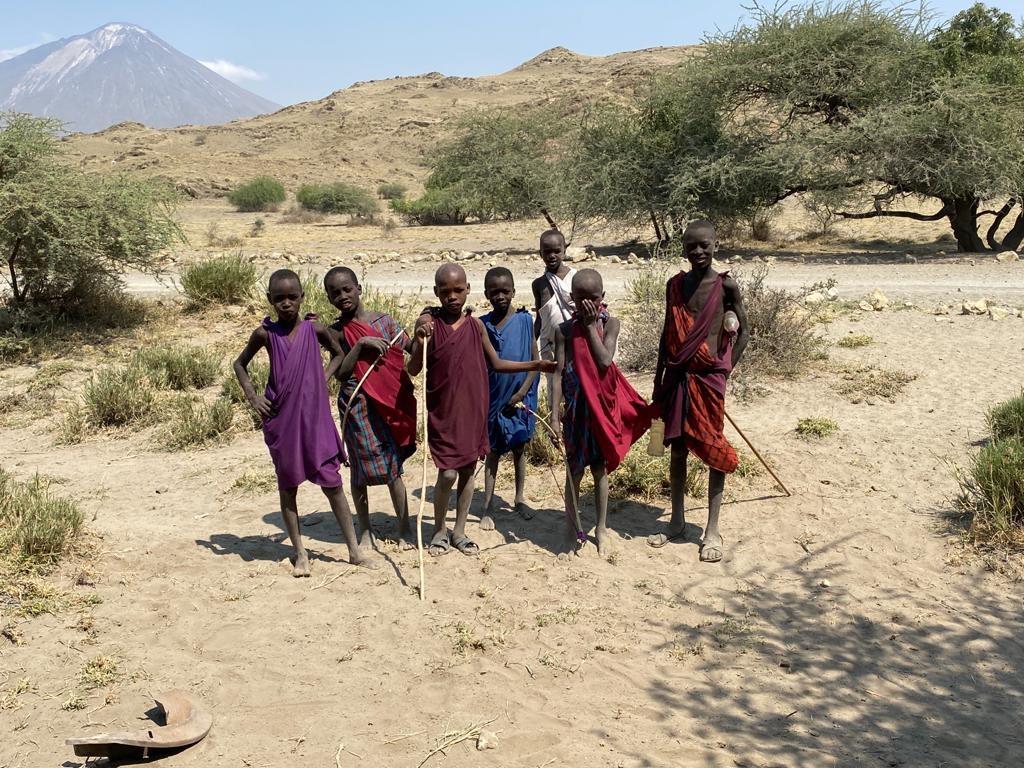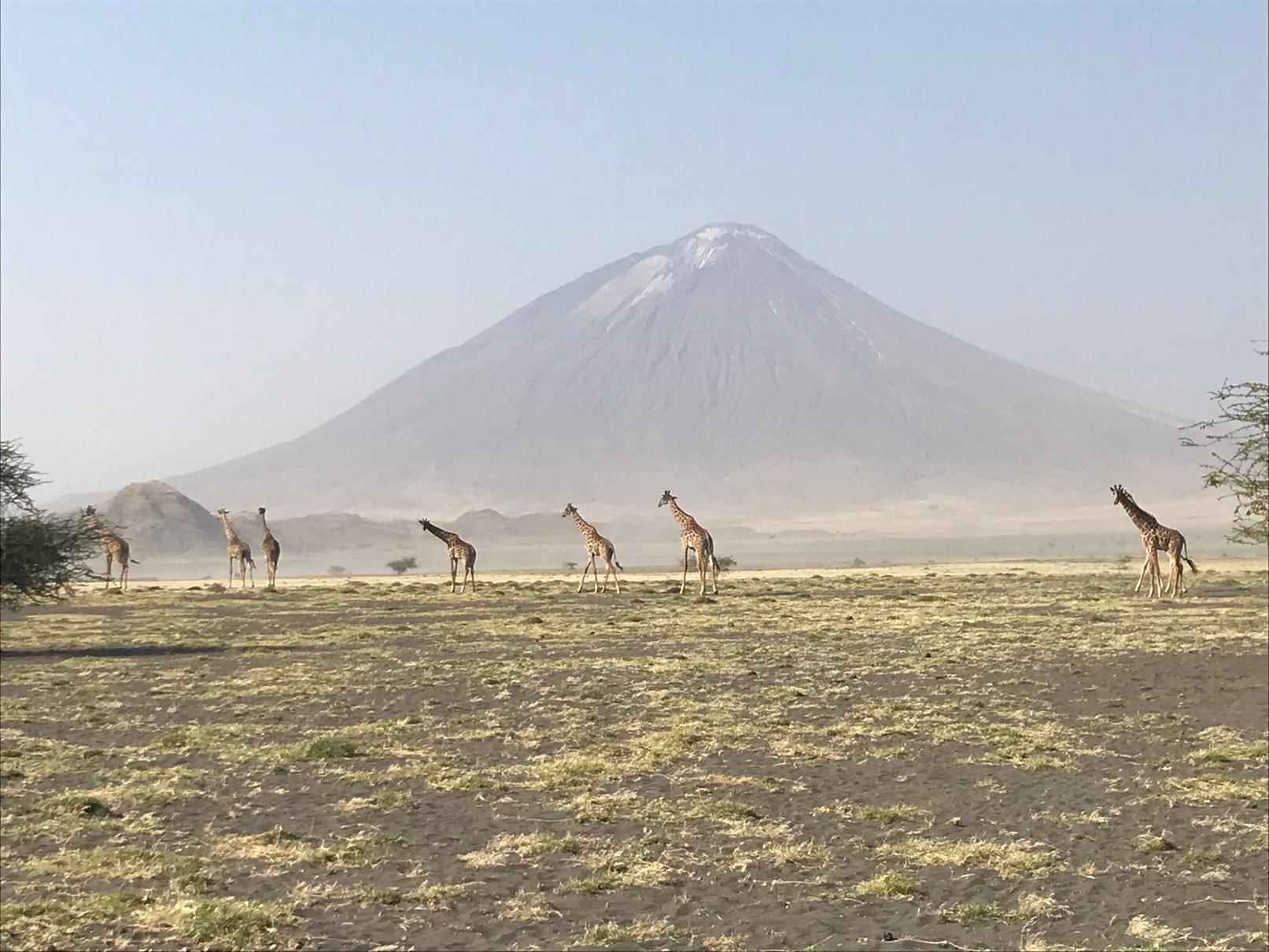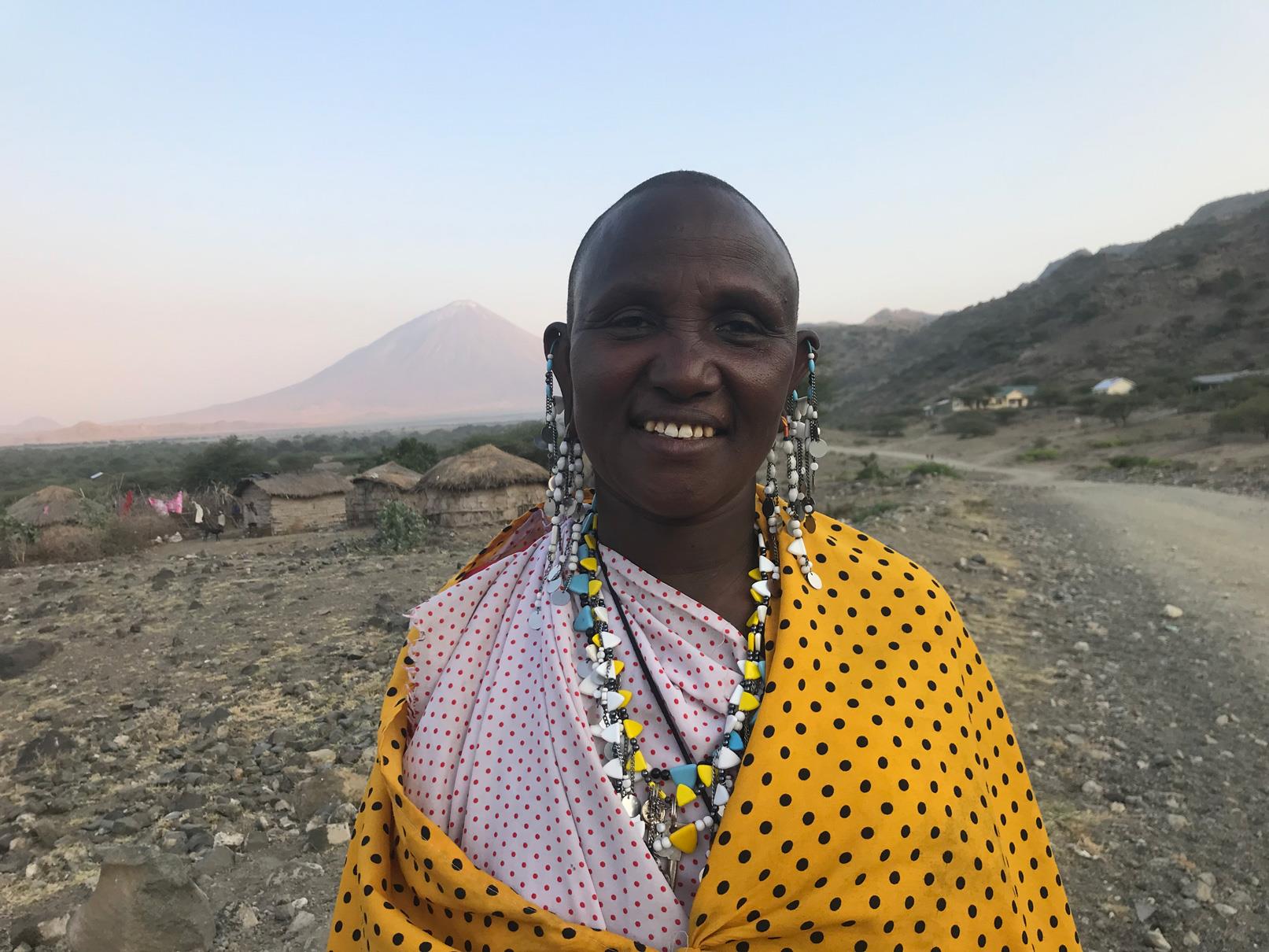
Maasai pastoralists protect the land, sustainable tourism protects the Maasai
Agricultural heritage designation helps preserve a way of life
FAO designated the Maasai Pastoralist Heritage in Engaresero, Tanzania as a Globally Important Agricultural Heritage System in 2011. This year marks the site’s tenth anniversary as part of the programme. ©FAO/Christabel Clark
27/09/2021
All seems at peace. Just the sound of bleating goats and clanging tin cooking pots ring out over the land as the sun sets between Tanzania’s Lake Natron and the mountain of Ol Doinyo Lengai, meaning ‘Mountain of God’ in the Maasai language. These two powerful symbols of nature make the village of Engaresero spectacularly unique.
Engaresero is situated in the plains of northern Tanzania. The Maasai pastoralists who have occupied the land for over two hundred years lead a semi-nomadic existence following a strict pattern of land rotation that ensures certain areas are left fallow for several months at a time. This sustainable pastoralism contributes to soil fertility and soil carbon, water regulation, pest and disease control, biodiversity conservation and fire management. The large healthy cows are testimony to the good grazing that is abundant throughout the year on this land.
The cattle that have adapted to the local climatic and ecological conditions are fundamental to the Maasai: “We are interconnected and inseparable,” said the Ward Councillor, Ibrahim Sakai, who describes how their cows hold more than just economic value. Cows are part of rituals and ceremonies, and their distinctive markings can quickly identify one Maasai clan from another.
Preserving heritage
Recognising that exceptionality of the Engaresero’s Maasai and how their pastoralist way of life benefits the surrounding ecosystems, FAO designated the area as a Globally Important Agricultural Heritage System (GIAHS) in 2011, this year marking its tenth anniversary as part of the programme.
The GIAHS programme helps to safeguard agricultural traditions that respect their surroundings. The programme additionally works to spread the word about innovative agricultural techniques and encourage sustainable tourism.
Tanzania, a popular travel destination, welcomed over 1.5 million tourists in 2019 alone. Before the pandemic, tourism provided an additional, yet essential, income for many of Engaresero’s Maasai. The extra income the community makes from tourism supports their pastoralist lifestyles and cultural heritage, and that in turn, preserves and protects the ecology of the land.


Though livestock is their principal livelihood, the Maasai greatly benefit from extra tourism income. FAO helped the villages establish the Eramatare Community Development Initiative that ensures that tourism activities protect the values and traditions o
Pride in traditions
“What our community really appreciated is that FAO made us proud of who we are,” said Arpakwa Sikorei, Community Conservation and Culture Officer, who is himself a Maasai and the focal point for the site. “What you are doing is right, they said. Tell us the challenges you are facing in your traditional system so we can re-strengthen it.”
As part of the GIAHS programme, FAO supports the community in addressing daily issues. Several years ago, the pastoralists raised the issue of not having enough water in the wet-season pasture. FAO helped the community build a dam and now that pasture continues well into the dry season, making it easier to adapt the grazing cycle to changing weather patterns.
Through the programme, FAO also oversaw the establishment and official registration of the Engaresero Eramatare Community Development Initiative, a Community-Based Organization (CBO) that offers guided tours to the growing number of visitors that the region saw before the pandemic.
The initiative plays a critical role in balancing environmental and socio-economic objectives. Tourism is managed by the CBO and offers a choice of different excursions with the local guides. Before reaching the village, visitors drive into an area where they can meet the guides and learn a bit about Maasai culture. Part of the fee each visitor is asked to pay goes to a community development fund that has helped young Maasai continue their studies after compulsory education ends at the age of fourteen. Members of the CBO also decide if and how funds can be spent on the community.

Tourism employs one in every ten people on the planet, but done unsustainably, it can be harmful to local people, traditions and landscapes. The COVID-19 pandemic is an opportunity to rethink tourism. ©FAO/Christabel Clark
Looking to the future
When asked about the needs of the community Nosikito Lemakanga, a 52-year-old grandmother and a former councillor who represented women from her district, explained, “We need better social services… access to better healthcare and education. With tourism funds from the CBO, we have started to see some developments,” she said explaining how all decisions put forward by the CBO must be approved by the village council that is careful to protect the values and traditions of the Maasai.
“A big problem is that many young people here are moving to the cities to find work. Through tourism and community projects, youth are encouraged to stay,” explains Nosikito.
Arpakwa is optimistic about the future: “There are already 40 trained guides who work on a rotational basis dividing their time between pastoralism and tourism. We are now hoping to develop the museum of Maasai cultural heritage and a small shop for the artisans.”
However, sustainability is key. If, as in other places, Engerasero is subjected to boundless tourism or unrestricted land use, the Maasai pastoral lifestyle will be threatened and with it the land and its unique biodiversity.
“The land here is precious. Outsiders have been interested in it for tourism, hunting and mining soda ash or extracting minerals from the lake so we don’t always feel secure on the land,” said Ibrahim.
“The land is everything to us,” adds Nosikito.
In our modern world, tourism is an unparalleled opportunity to appreciate and preserve cultures and traditions. The tourism sector employs one in every ten people on the planet, but unsustainable tourism can be harmful to local people, traditions and landscapes. The COVID-19 pandemic represents an opportunity to rethink the future of tourism. GIAHS sites and agritourism offer a unique chance to learn about local and indigenous agricultural traditions, while supporting farmers, rural communities and sustainable development.
Related links
Learn more
- Website: Globally Important Agricultural Heritage System (GIAHS)
- Website: FAO & Indigenous Peoples
- Website: World Tourism Day- 27 September

